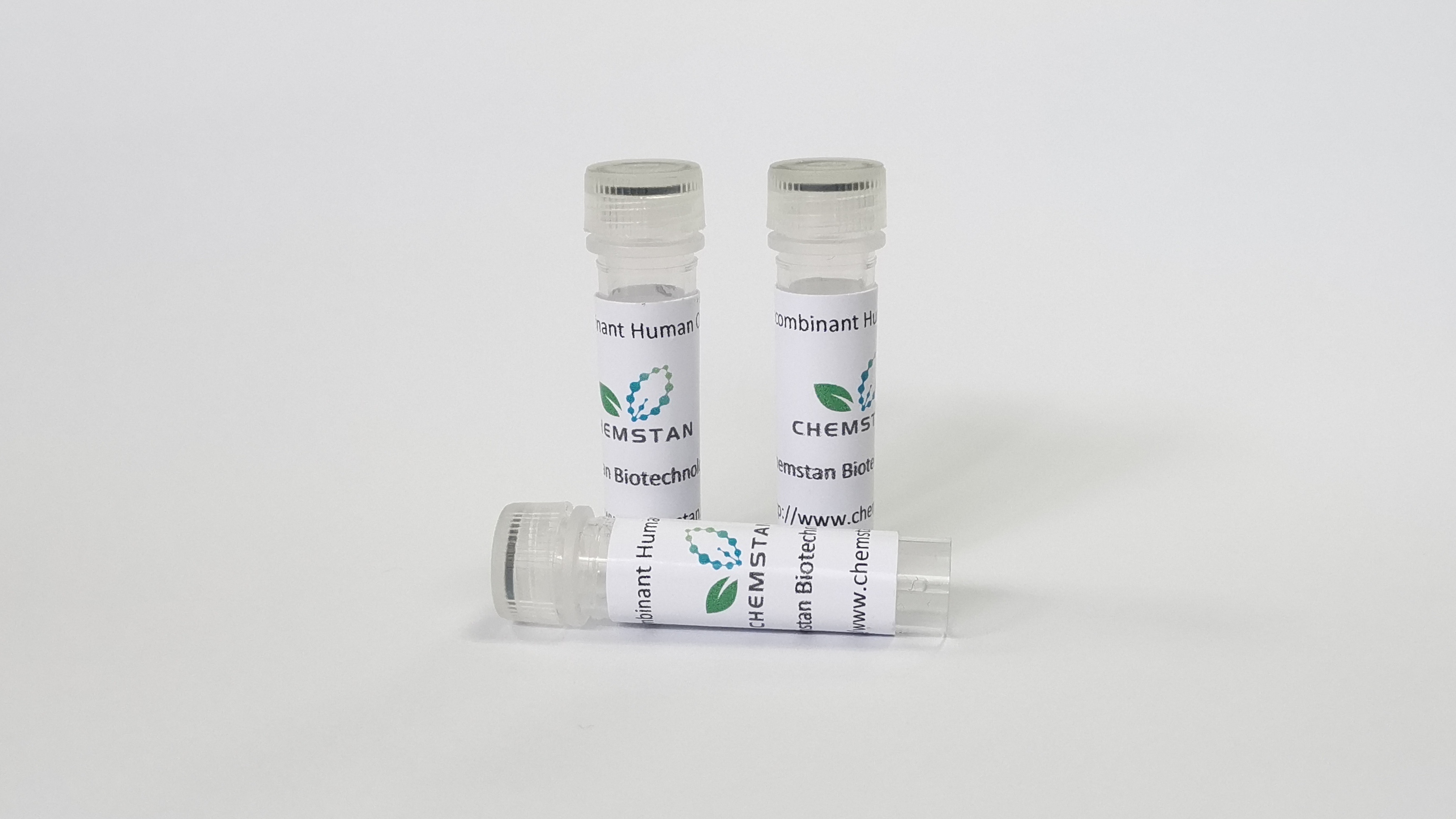
瀏覽量: 53
- 產(chǎn)品名稱(chēng): Recombinant Human PITRM1 protein
- 產(chǎn)品貨號(hào): CSP01319
- 貨期: 現(xiàn)貨
- 價(jià)格與訂購(gòu): 1800
- 數(shù)量:
庫(kù)存: 100
- 規(guī)格: 50μg 100μg 1mg
- 產(chǎn)品信息
- 如何訂購(gòu)
概述(Summary)
英文全稱(chēng)
Recombinant Human PITRM1 protein
純度(Purity)
>90% as determined by SDS-PAGE
內(nèi)毒素(Endotoxin level)
Please contact with the lab for this information.
蛋白構(gòu)建(Construction)
A DNA sequence encoding the human PITRM1 (Leu544-Ser806) was fused with His tag
Accession #
Q5JRX3
表達(dá)宿主(Host)
E.coli
種屬(Species)
Homo sapiens (Human)
預(yù)測(cè)分子量(Predicted Molecular Mass)
30.16 kDa
制劑(Formulation)
Supplied as solution form in PBS pH 7.5 or lyophilized from PBS pH 7.5.
運(yùn)輸方式(Shipping)
In general, proteins are provided as lyophilized powder/frozen liquid. They are shipped out with dry ice/blue ice unless customers require otherwise.
穩(wěn)定性&儲(chǔ)存(Stability &Storage)
Use a manual defrost freezer and avoid repeated freeze thaw cycles.
Store at 2 to 8 °C for one week .
Store at -20 to -80 °C for twelve months from the date of receipt.
Store at 2 to 8 °C for one week .
Store at -20 to -80 °C for twelve months from the date of receipt.
復(fù)溶(Reconstitution)
Reconstitute in sterile water for a stock solution.A copy of datasheet will be provided with the products, please refer to it for details.
背景(Background)
背景介紹
Prolyl endopeptidase, also known as PREP, belongs to a distinct class of serine peptidases. It is a large cytosolic enzyme which was first described in the cytosol of rabbit brain as an oligopeptidase. Prolyl endopeptidase degrades the nonapeptide bradykinin at the Pro-Phe bond. It is involved in the maturation and degradation of peptide hormones and neuropeptides such as alpha-melanocyte-stimulating hormone, luteinizing hormone-releasing hormone (LH-RH), thyrotropin-releasing hormone, angiotensin, neurotensin, oxytocin, substance P and vasopressin. Prolyl endopeptidase's activity is confined to action on oligopeptides of less than 1 kD and it has an absolute requirement for the trans-configuration of the peptide bond preceding proline. It cleaves peptide bonds at the C-terminal side of proline residues.
Note
For research use only .

 地 址:
地 址: 產(chǎn)品銷(xiāo)售:
產(chǎn)品銷(xiāo)售: E - mail :
E - mail : 郵 編:
郵 編:
 Amily
Amily


